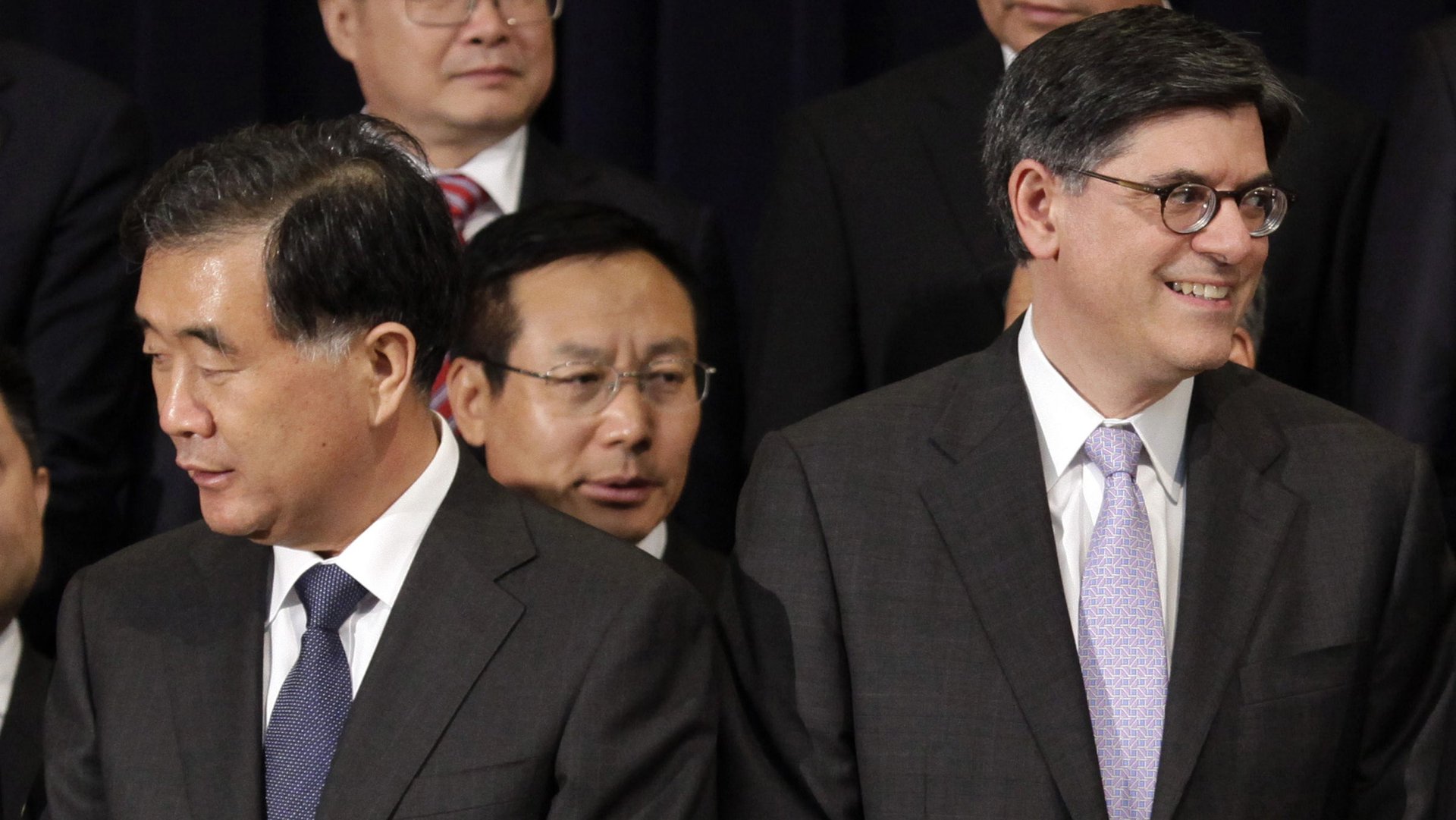Wang Yang kicks off US-China dialogue with no-homo diplomacy
Five years ago, the US and China set up the Strategic and Economic Dialogue, the two-day meeting during which top leaders mull the issues of the day. The SED created unprecedented familiarity between former treasury secretary Timothy Geithner and his Chinese counterparts, most notably the then diplomatic corps favorite Wang Qishan.


Five years ago, the US and China set up the Strategic and Economic Dialogue, the two-day meeting during which top leaders mull the issues of the day. The SED created unprecedented familiarity between former treasury secretary Timothy Geithner and his Chinese counterparts, most notably the then diplomatic corps favorite Wang Qishan.
The new vice-premier representing China, Wang Yang, who met with US treasury secretary Jack Lew to kick off this year’s SED, has yet to prove his likability. But his comments to Lew at the launch of the SED weren’t a great start. Wang likened the SED talks to a marriage, as Reuters reports. Specifically, a straight marriage.
“In China when we say a pair of new people, we mean a newlywed couple,” Wang told the press as he sat next to Lew. “Although U.S. law does permit marriage between two men, I don’t think this is what Jacob or I actually want.” (The editors of The Economist might beg to differ.)
The comment, likely a reference to the Supreme Court’s recent ruling on the Defense of Marriage Act, was topped off with another awkward marriage quip. “[W]e cannot have a divorce the way Wendi and Rupert Murdoch just had,” he said, referring to the split-up of the Australian media mogul and his wife, Wendi Deng, who was born in China.
Then, asked what had changed since his last US visit, which was a decade ago, Wang said, “I can see that the Americans are still taller than the Chinese and still have a stronger body and longer nose than the Chinese.” (“Long nose” has long been a comical term for Western foreigners in China.)
Humor is culturally specific. What’s funny in one country often isn’t in another. To Wang’s credit, his efforts to be personable and casual show at least that China’s new administration wants the SED relationship to be productive—just not, as Wang Yang insisted, reproductive.